Mamas, we all know how exciting it is for our babies and toddlers to have some of their first experiences with a holiday — especially one as fun as the 4th of July. But there are things to think through before the smallest members of your family celebrate this holiday in particular.
We interviewed a pediatric nurse practitioner and lactation consultant, Rachel Angulo, who works at the Mercy Pediatric Clinic in Bentonville (at the Highway 102 location). She has a special insight on this holiday and baby safety.
We heard that the 4th of July was pretty exciting for you last year. Why is this holiday extra special for your family?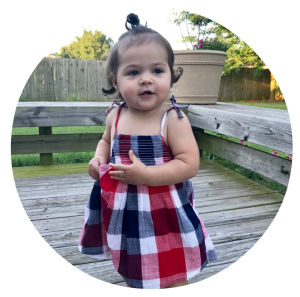
I have always loved the 4th of July. When I think of those bright lights in the sky, I envision the warm nights and sweet memories with family and friends. This may be why last year at 11 pm on July 3rd, my husband and I were telling the OB to let me labor down a little more before breaking my water so I could deliver her on the 4th of July! We were ready for our little firecracker baby! We celebrated her birth by watching the fireworks at the AMP from the end of the hospital hallway. We always joke that she will have to love fireworks because she will grow up thinking they are all in celebration of her birthday. 🙂
As you know, today’s fireworks can be extremely loud — loud enough to hurt an adult’s ears. What should parents of babies and toddlers do to protect their child’s hearing when loud fireworks are being used nearby?
Noise from fireworks can get up to 150 decibels (dB)! This compares to noise from a chainsaw (100 dB), a jet plane taking off (120 dB), and a jackhammer (130 dB). Sounds louder than 85 dB can cause permanent hearing loss. This hearing loss is not just from repetitive loud noise, but can occur in a single loud noise incident. The American Speech-Language-Hearing Association released some very important tips on preventing permanent hearing loss during these holiday celebrations: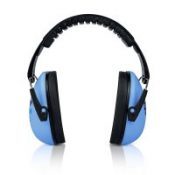
- Keep a safe distance. Stay at least 500 feet away from fireworks, firecrackers, and other sources of loud noise.
- Wear earplugs. Earplugs are an inexpensive, easy way to protect your hearing. (I have noise canceling earmuffs that we use in loud places and they are actually recommend for all children under 7 or 8.)
- Know your limits. Avoid noises that are “too loud” and “too close” or that last “too long.”
If a baby or toddler is frightened by fireworks (instead of entertained by them) should parents try to show them that they’re not scary or just remove them from the situation and try again next year?
An upset baby or toddler may be a sign that the noise is too loud. Make sure they have properly fitting noise canceling earmuffs and are far away from the fireworks. If you’re following all the guidelines for firework safety and your child still does not like the fireworks display? Try again next year!
Some tips for firework safety:
All fireworks have a potential for injury such as severe burns, blindness, scars, and even death. Even fireworks that are thought to be more of the safe kind (bottle rockets, sparklers) are risky. 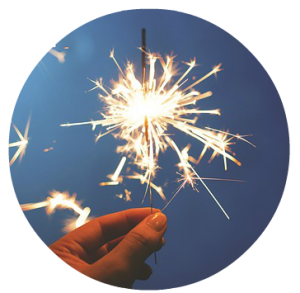 Although most sparkler-related injuries are minor burns and corneal abrasions, sparklers can reach temperatures greater than 1000°F at the tip and can cause serious burns in an instant.
Although most sparkler-related injuries are minor burns and corneal abrasions, sparklers can reach temperatures greater than 1000°F at the tip and can cause serious burns in an instant.
Actually, The American Academy of Pediatrics recommends against the private sales of fireworks in general and recommend that families attend public firework displays instead, leaving the danger to the professionals. If you do decide to do participate in fireworks outside of a public event, please be cautious and follow a few of these tips to decrease injury:
Once you light something, light only one at a time and move out of the way quickly as far as you can before it goes off. Children should never light fireworks, even small novelty ones.
If a lit firework does not go off, do not immediately pick the firework up. Wait 20 minutes, then soak it in a nearby bucket of water. Make sure your child does not touch used fireworks.
NEVER experiment with homemade fireworks.
What can parents do to make sure their baby isn’t getting overheated during outdoor events like a barbecue or fireworks show? Are there any red flag symptoms that indicate a child is getting too hot?
The fun of a hot summer day can be quickly disturbed by a child who gets overheated. Some prevention techniques include: stay well hydrated, sit in the shade when possible, dress children lightly, cool off with a water mist or a cool bath, and prevent the effects of sun exposure such as sunburn by using an appropriate sunscreen and reapply frequently.
Infants under 6 months should not be given extra water as they do not need it and it can actually be very dangerous! Frequent feedings of breast milk or formula are enough for babies under 6 months, and parents can add up to 4-6 ounces of water per day in a cup to babies over 6 months. Some signs of overheating to look out for would be:
- Feeling faint or overly tired, difficult to arouse
- Headache
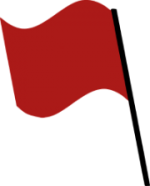
- Fever
- Intense thirst
- Not urinating for many hours
- Nausea or vomiting
- Breathing much faster than normal
- Muscle aches or spasms
- Skin numbness or tingling
If you see these symptoms, call your pediatric health care provider’s office immediately so they can advise on the best course of action or call 911/go to local ER if more emergent care is needed. Mercy Pediatric Clinic has a nurse-on-call line that is available 24/7. This can be accessed by calling our main clinic number at (479) 636-9234.
Any other tips for keeping little ones safe, healthy and happy during 4th of July celebrations?
Just be smart and do not take risks! When it comes to your children, that one firework is not worth a serious injury. You want them to enjoy the experience of a memorable and safe 4th of July, so they can continue to look forward to it year after year.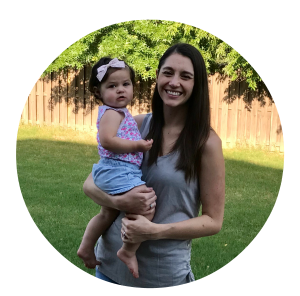
Thank you to fellow mama Rachel Angulo, nurse practitioner and lactation consultant for Mercy Pediatric Clinic for her tips on baby and toddler safety during the 4th of July. To schedule an appointment with Rachel, call the Mercy Pediatric Clinic in Bentonville (Highway 102) at 479-321-3873. Click here for driving directions.
